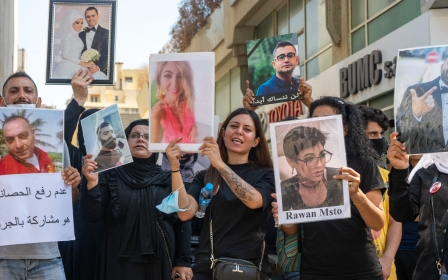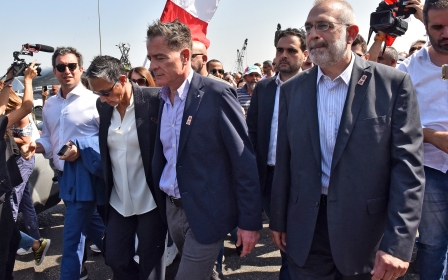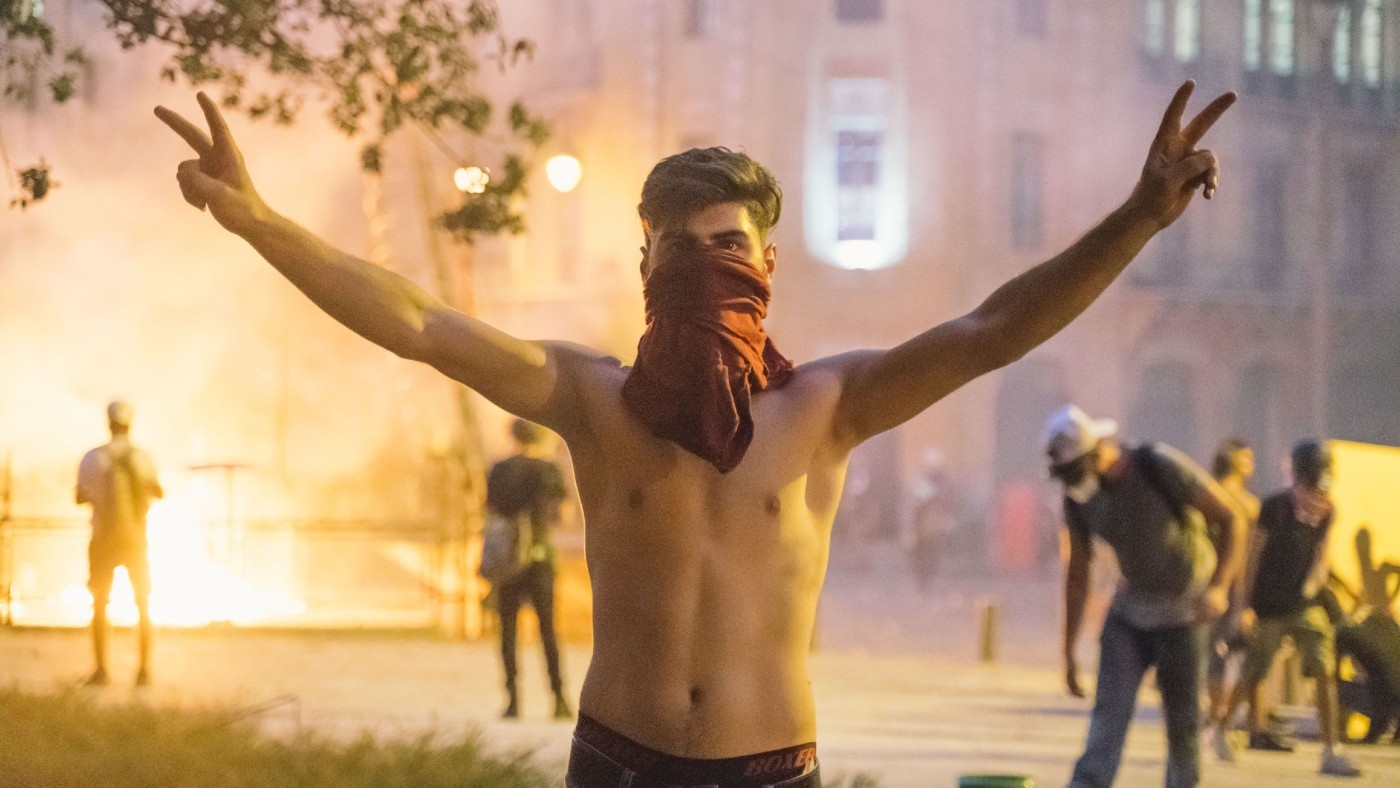
In pictures: The Beirut port explosion and a two-year battle for justice
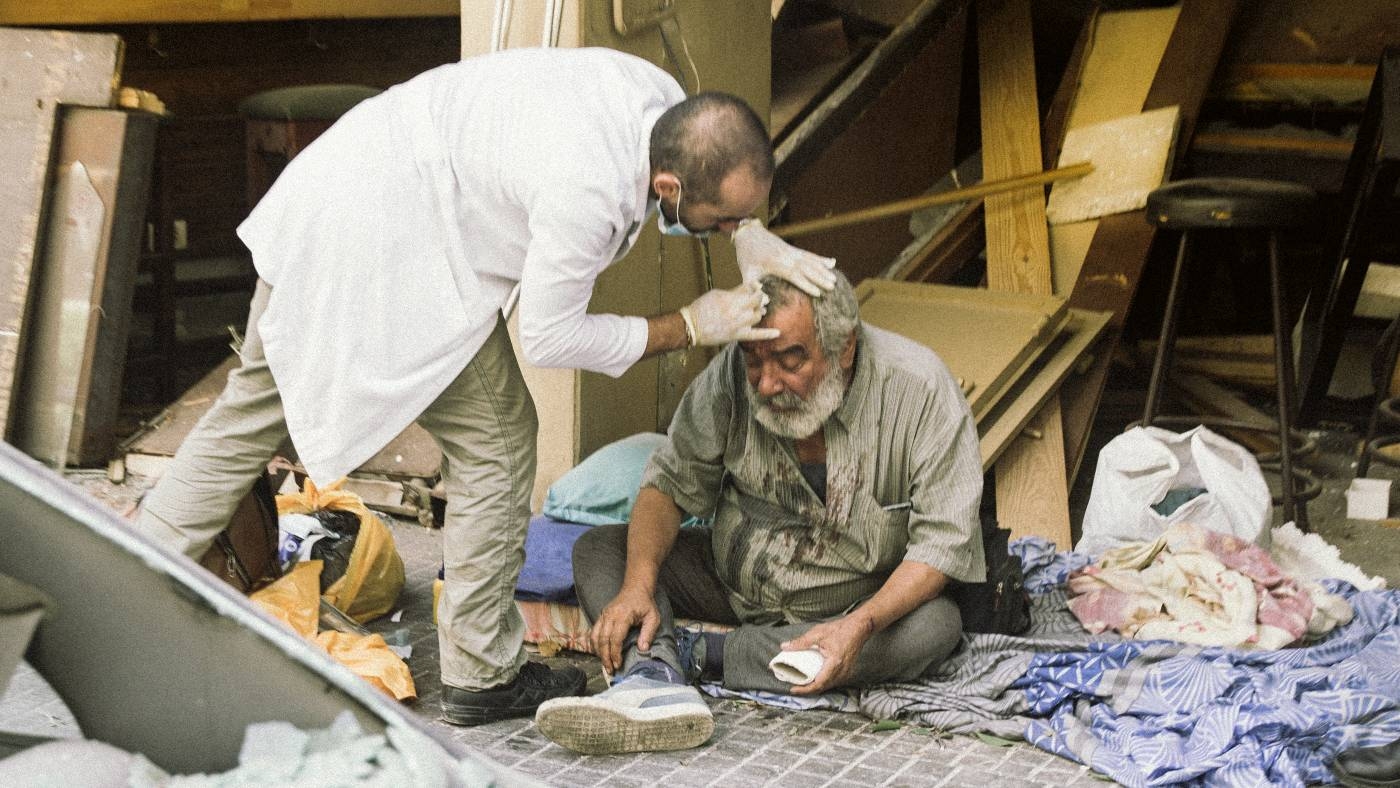
On 4 August 2020, one of the largest non-nuclear explosions in history struck Beirut, killing at least 218 people, injuring thousands and displacing over 300,000 people. In the days that followed, society mobilised to clear the streets of the Lebanese capital and help the victims of the blast.
But what had caused the explosion? Why was the port of Beirut storing so much ammonium nitrate? Who was responsible for the disaster, and who had ignored the various warning signs?
Two years on, many of these kinds of questions remain unanswered, with Lebanese society and the families of the victims still denied access to justice.
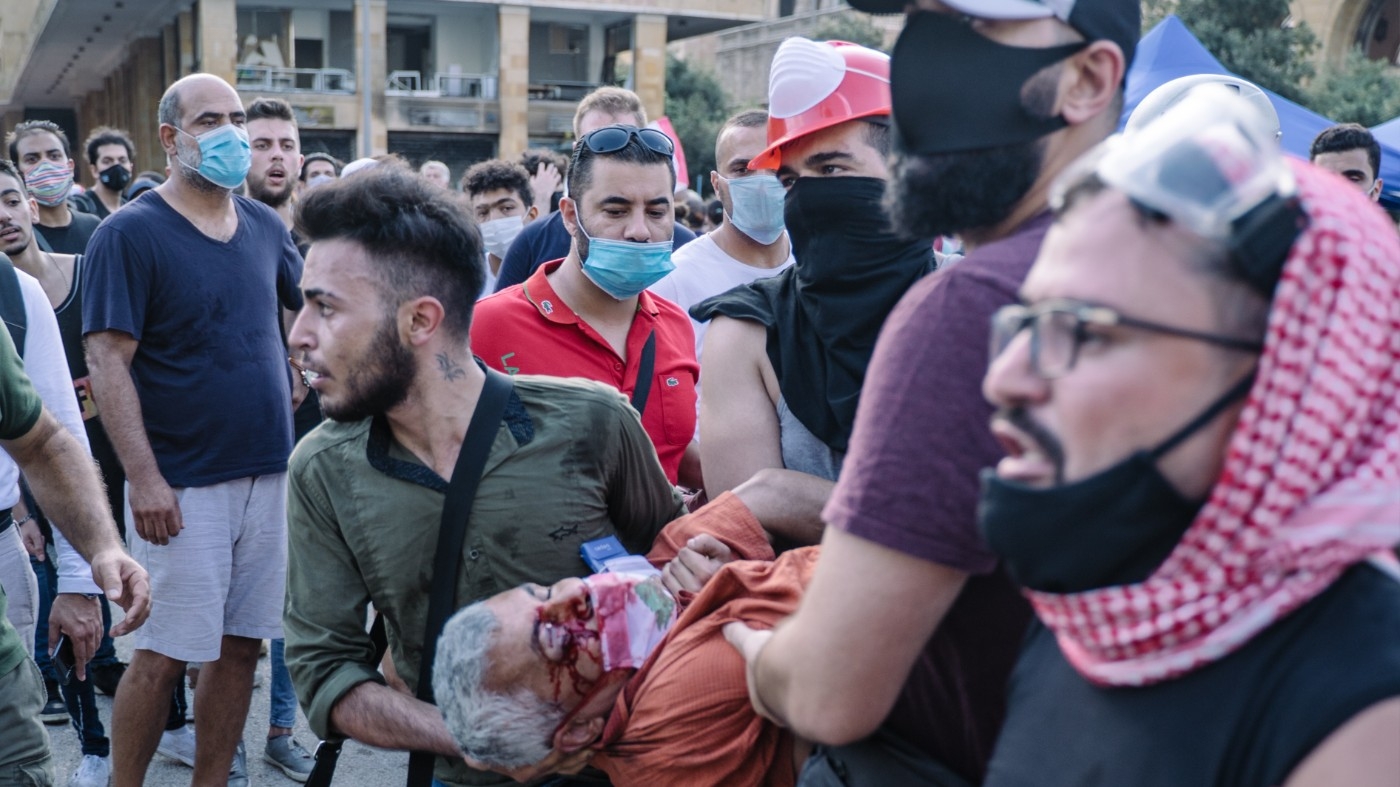
A few days after the explosion, clashes broke out in central Beirut between security forces and protesters who saw the Beirut port explosion as a clear demonstration of the corruption and state neglect that plagues the country.
Several reports, including those by Human Rights Watch and Amnesty International, found that security forces used excessive and sometimes lethal force against largely peaceful protesters. At least 230 people were injured in the violence.
On 13 August, a council of judges appointed Fadi Sawan as the magistrate in charge of the investigation, which quickly stalled.
In the absence of parliamentary action to advance the investigation, Judge Sawan indicted Prime Minister Hassan Diab and three former government ministers. In response, two of the former ministers, who are also members of parliament, filed a complaint with the Court of Cassation.
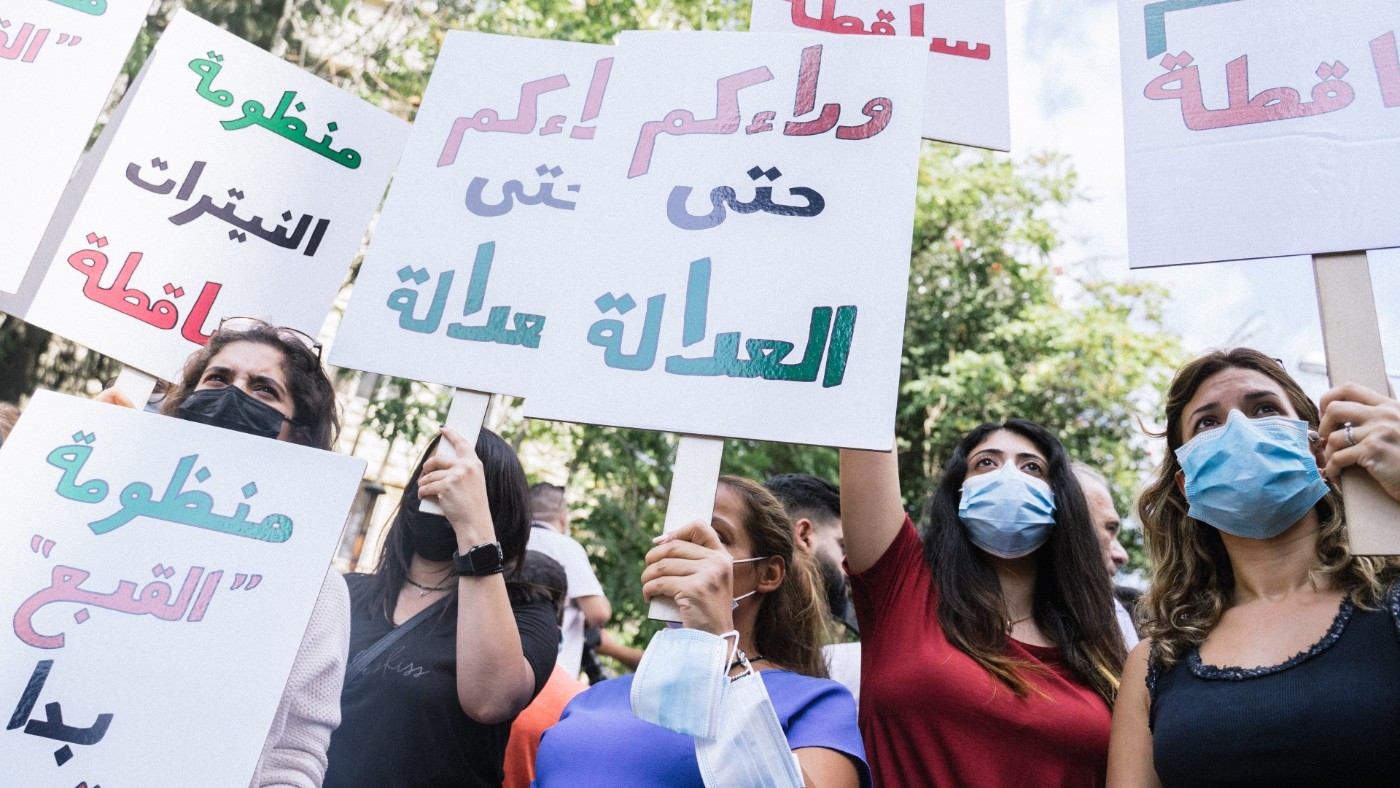
In February 2021, Sawan was removed from his role after a complaint filed by two former Amal Party ministers he had accused of criminal negligence.
Tarek Bitar, head of Beirut's criminal court, replaced Sawan as head of the investigation. Bitar was himself the subject of numerous complaints, and the investigation was stopped on four separate occasions.
In this photo, families of the victims of the Beirut port explosion are shown gathered in front of the courthouse to condemn the decision of officials to stop the investigation and attempt to remove Judge Bitar from the investigation.
On the placards we can read "The fallen authority of nitrate" and "Behind you [Bitar] until justice is achieved".
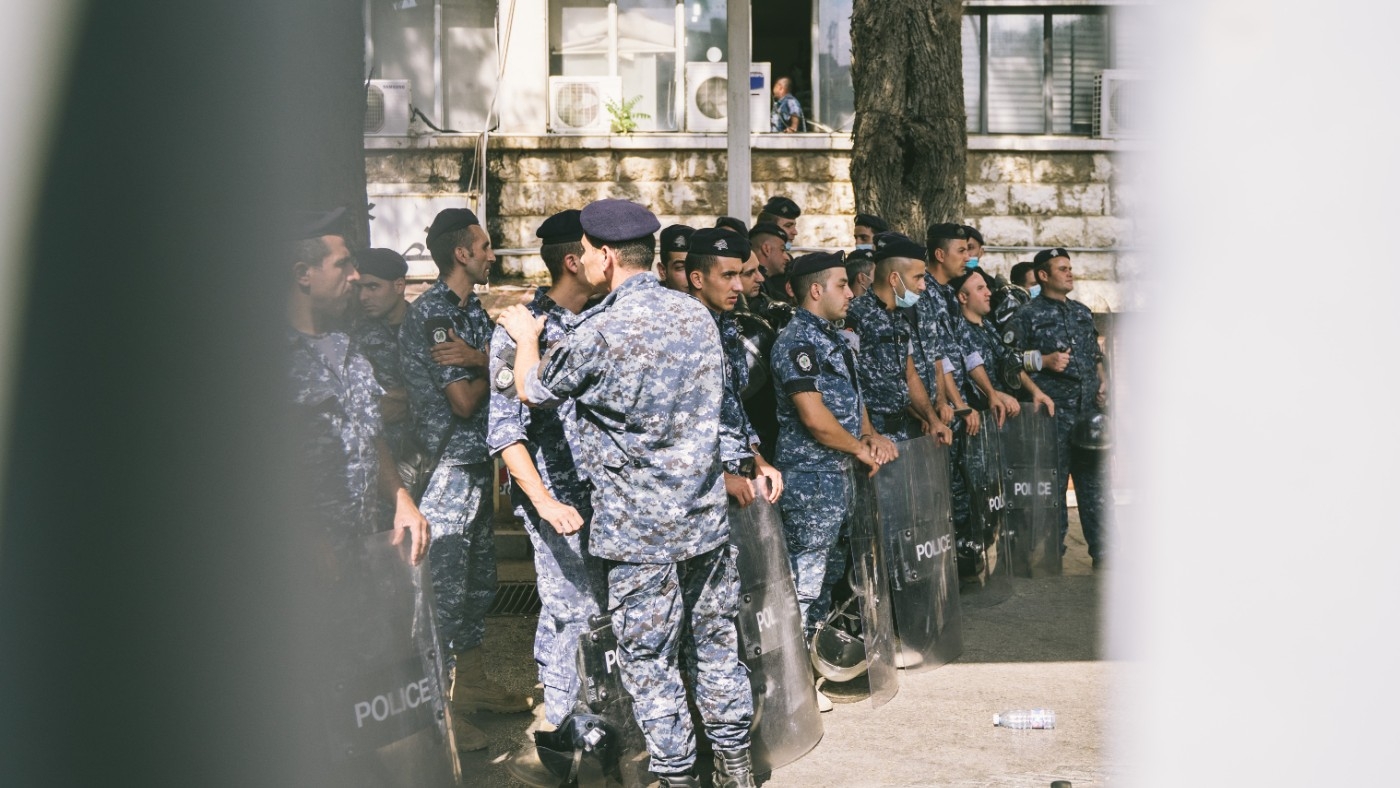
Internal security forces were widely deployed as families of the victims gathered at the courthouse in September 2021 to denounce the attempt by officials to remove Bitar from the investigation.
The issue of the explosion and its subsequent investigation is highly sensitive and hotly contested in Lebanon.
In October 2021, armed fighting erupted in the neighbourhood of Tayouneh between the Lebanese Christian forces and members affiliated with the Shia Amal and Hezbollah movements, which were calling for the removal of Bitar.
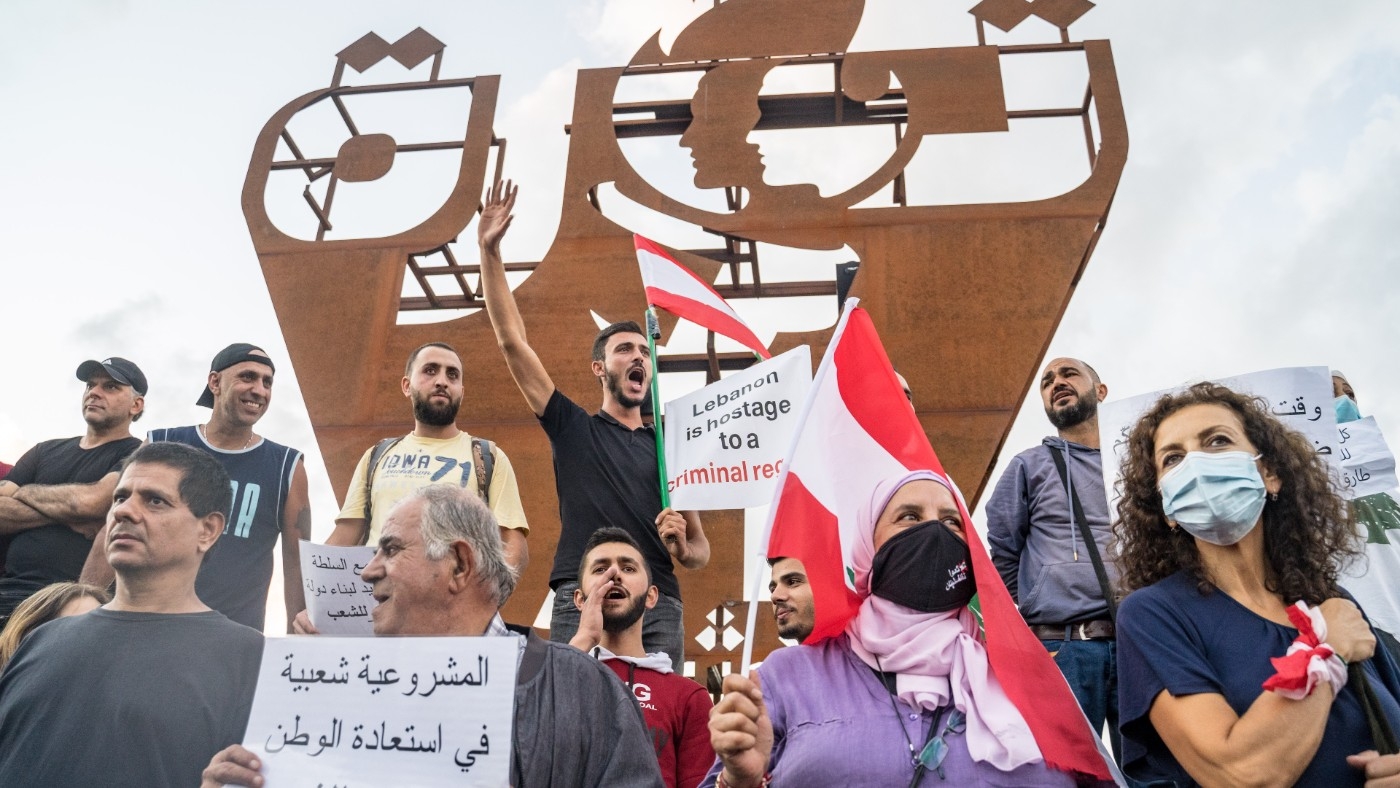
On the second anniversary of mass protests that had erupted in October 2019 initially over planned tax increases, even as the inaction of political leaders in the face of the economic crisis was widely denounced, the stalling of the investigation into the Beirut port explosion was also strongly criticised.
A few days after the clashes in Tayouneh, protesters showed their support for Bitar and demanded that the investigation be conducted without political interference.
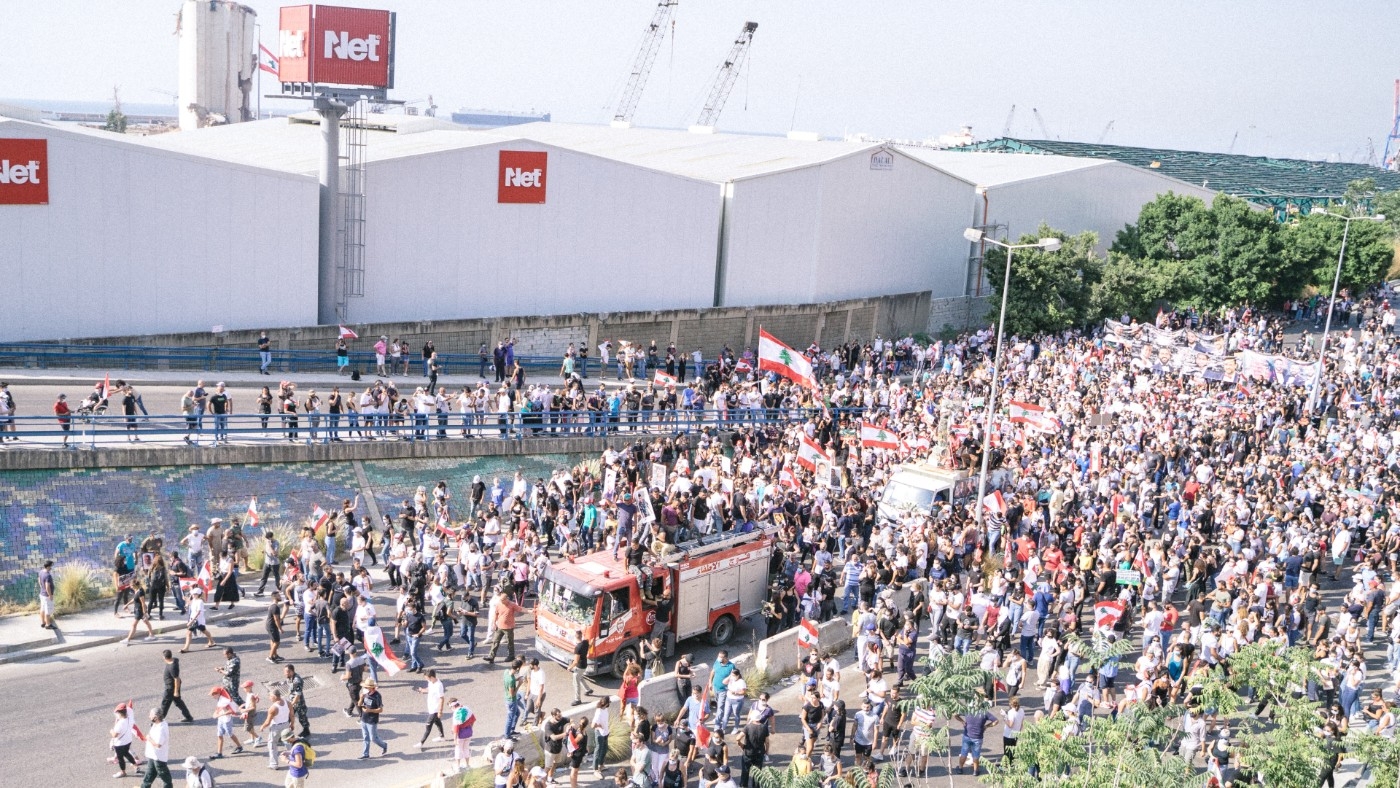
On the occasion of the first commemoration of the Beirut port explosion on 4 August 2021, thousands of people gathered in Beirut to denounce the many institutional and political blockages that had stopped the investigation from moving forward.
Among the various demonstrators, the culture of impunity inherited from the post-Civil War period was highlighted as an obstacle to justice. The former ministers and high-ranking officials indicted by Judge Bitar in the case were condemned for using political power to protect themselves.
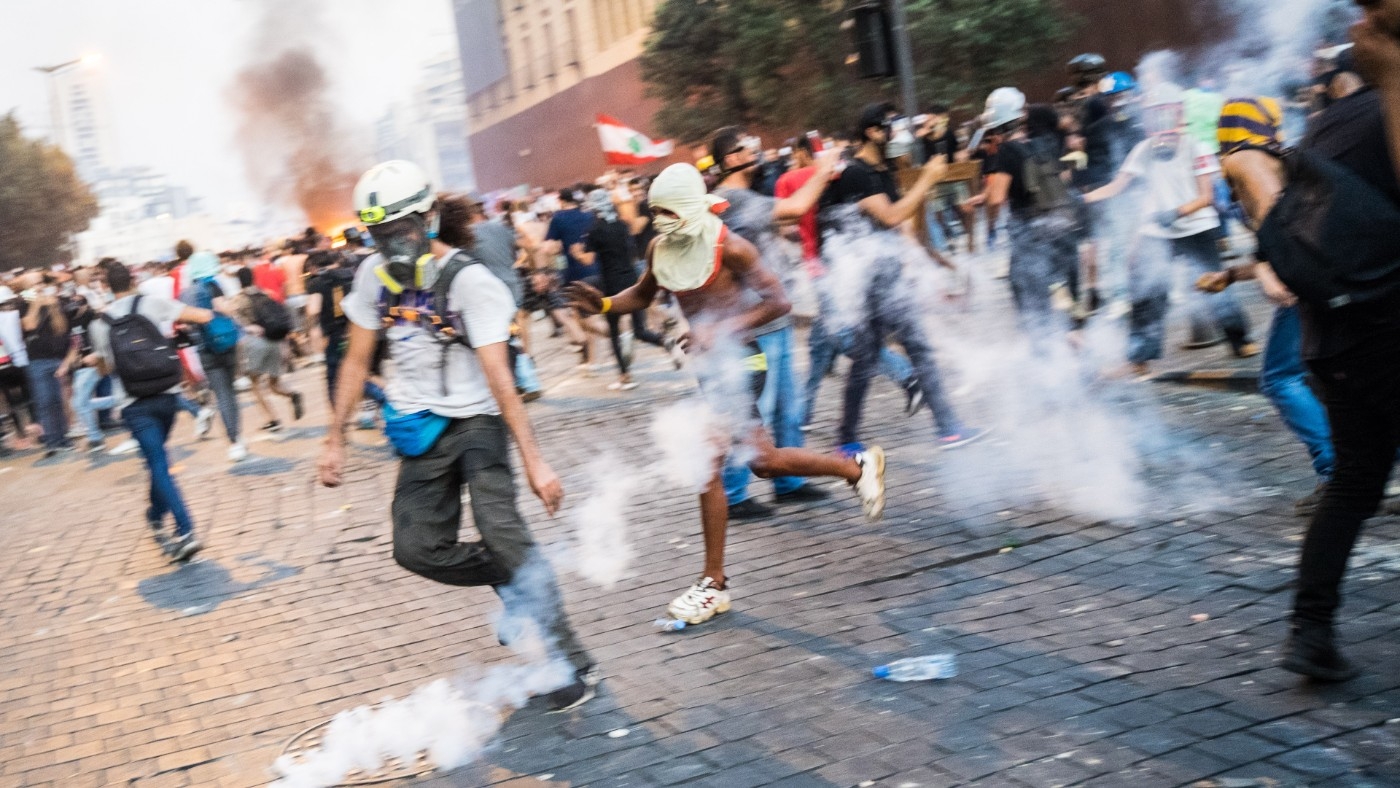
After a minute of silence at 6.07pm held in front of the Emigrant statue facing the port of Beirut to pay tribute to the victims, thousands of demonstrators went to the parliament buildings to demand the lifting of political immunity.
On the front line, the younger generations, which want to do away with the political class that has ruled the country since the end of the civil war in 1990, decried the corruption of Lebanon's leaders.
Old slogans from the massive demonstrations of October 2019, such as "All means all," echoed and mingled with the whistle of tear gas grenades thrown by security forces.
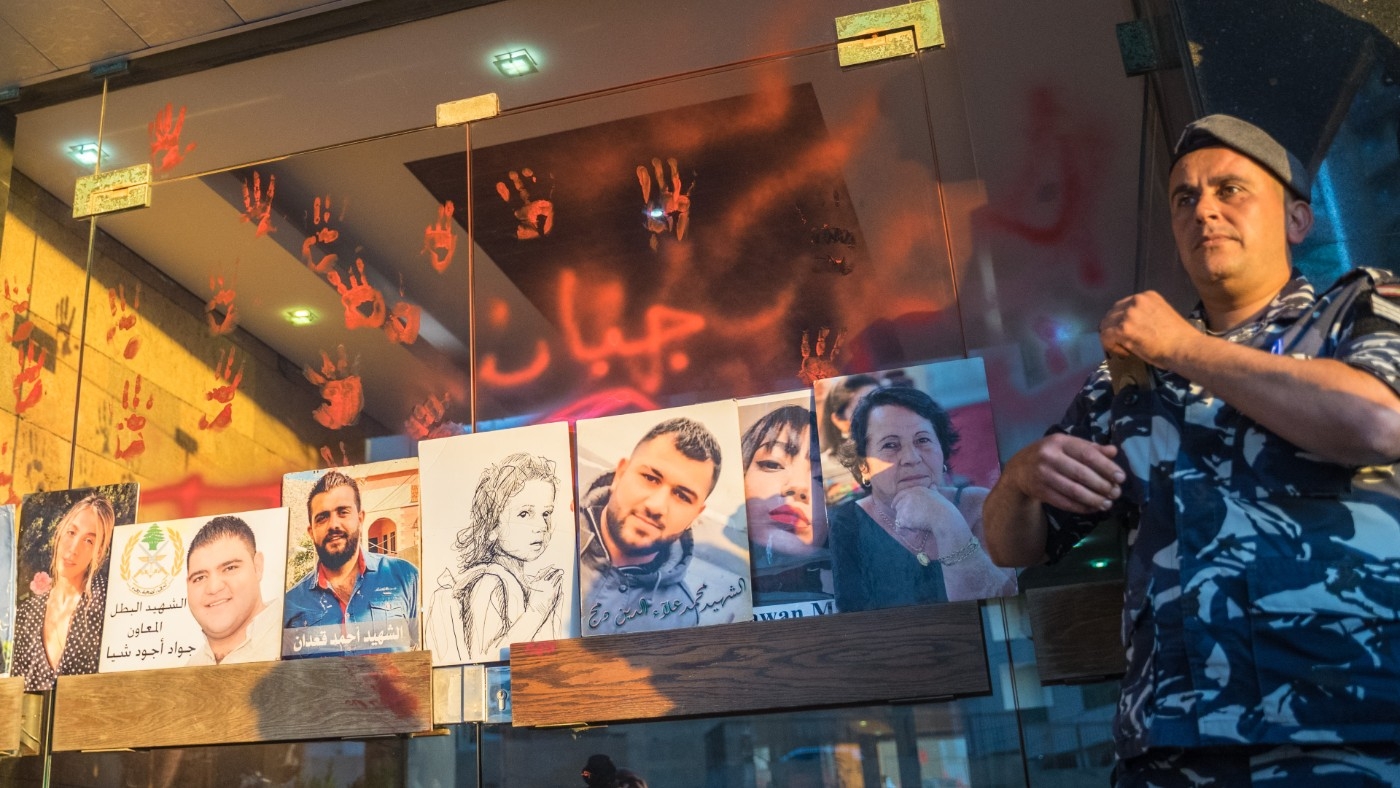
While the investigation has been suspended since December 2021, the families of the victims of the port blast have gathered outside the apartment of Youssef Khalil, the finance minister and an ally of Parliament Speaker Nabih Berri, who heads the Amal movement.
Khalil refuses to sign the draft appointment of six of the 10 presidents of chambers of the Court of Cassation, which forms the plenary assembly of this body.
Bitar, who has charged four former senior government officials with intentional killing and negligence leading to the deaths of dozens of people, has had his work blocked for eight months pending the court's ruling, after two deputies and the former Amal ministers Ali Hassan Khalil and Ghazi Zeaiter filed a legal challenge.
The court cannot rule until the six vacancies are filled, and the appointments require Khalil's approval.
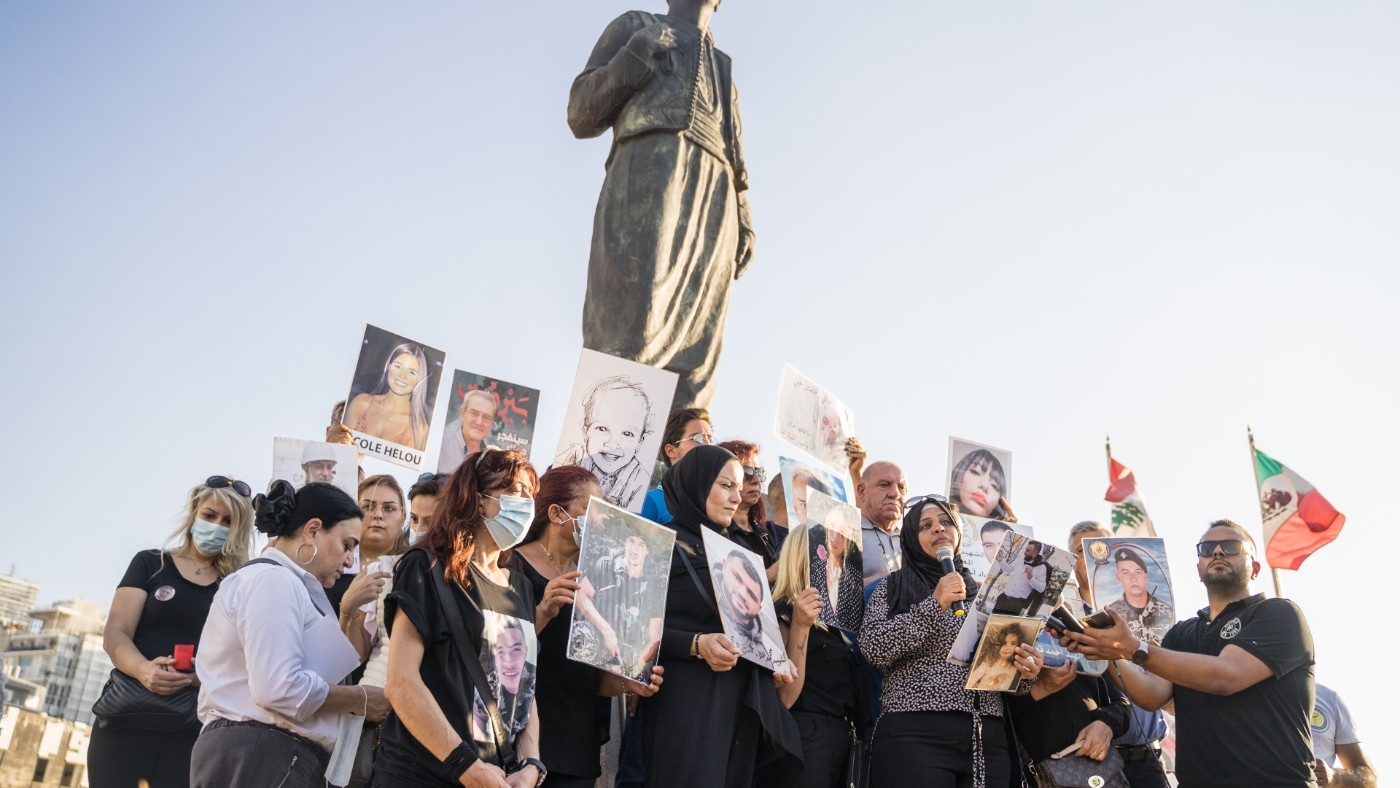
On the fourth day of every month, the families of the victims of the Beirut port explosion gather in front of the Emigrant statue in order to put pressure on the political authorities and obtain justice.
The resumption of the investigation into the Beirut explosion and the preservation of the silos are among the issues they are working on.
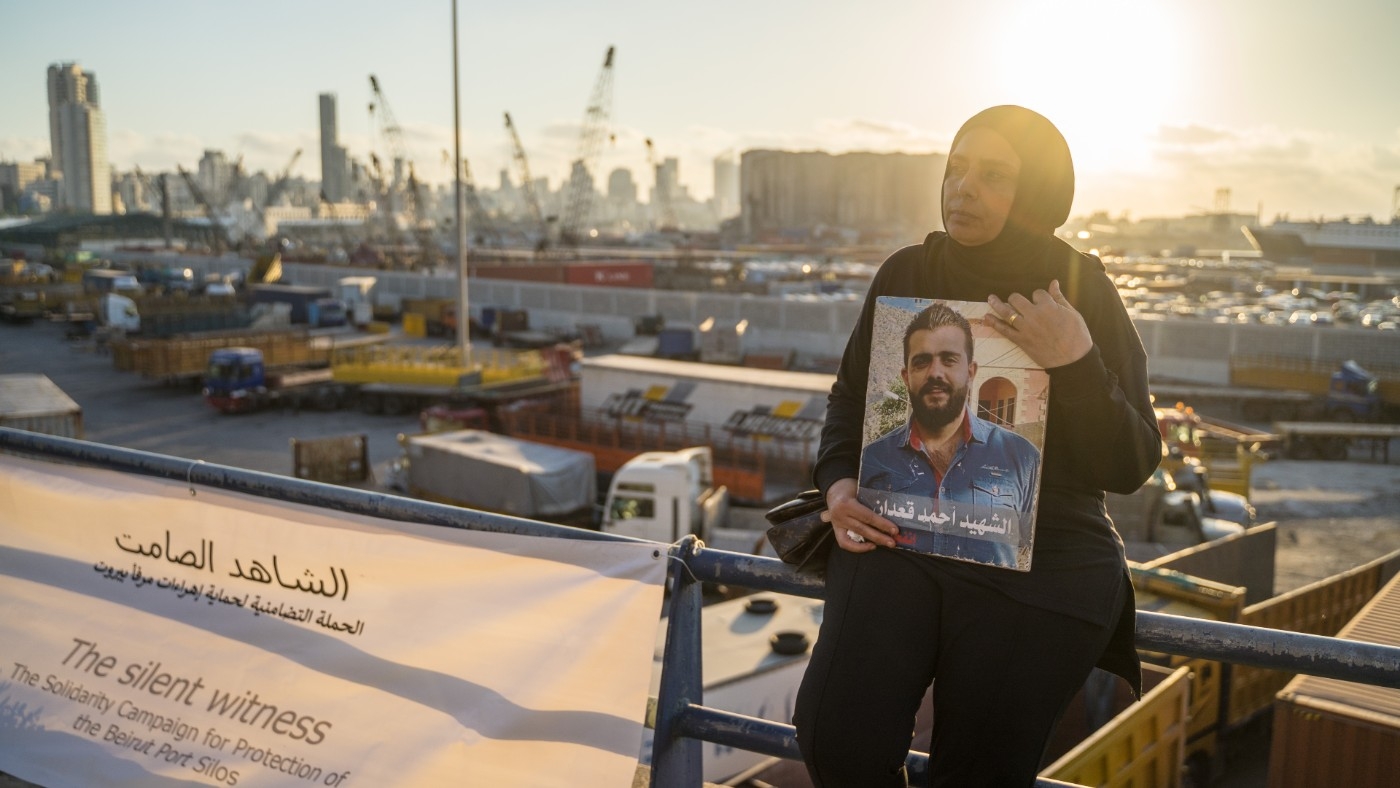
While the Lebanese cabinet approved the demolition of the silos last April, claiming that they were a danger to public safety, the families of the victims organised themselves to preserve what they consider a testament to the crime committed on 4 August.
Together with other civil society organisations, they launched the solidarity campaign "The Silent Witness" to pressure the government and protect what remains of the silos.
For Rima Zahed, sister of Amin Zahed, who died at the age of 42 while working in the port, the silos are one of the markers of the crime against humanity committed by Lebanese authorities.
"The silos are one of the few visual infrastructures that stayed after the explosion. It will show the other generations what happened on 4 August."
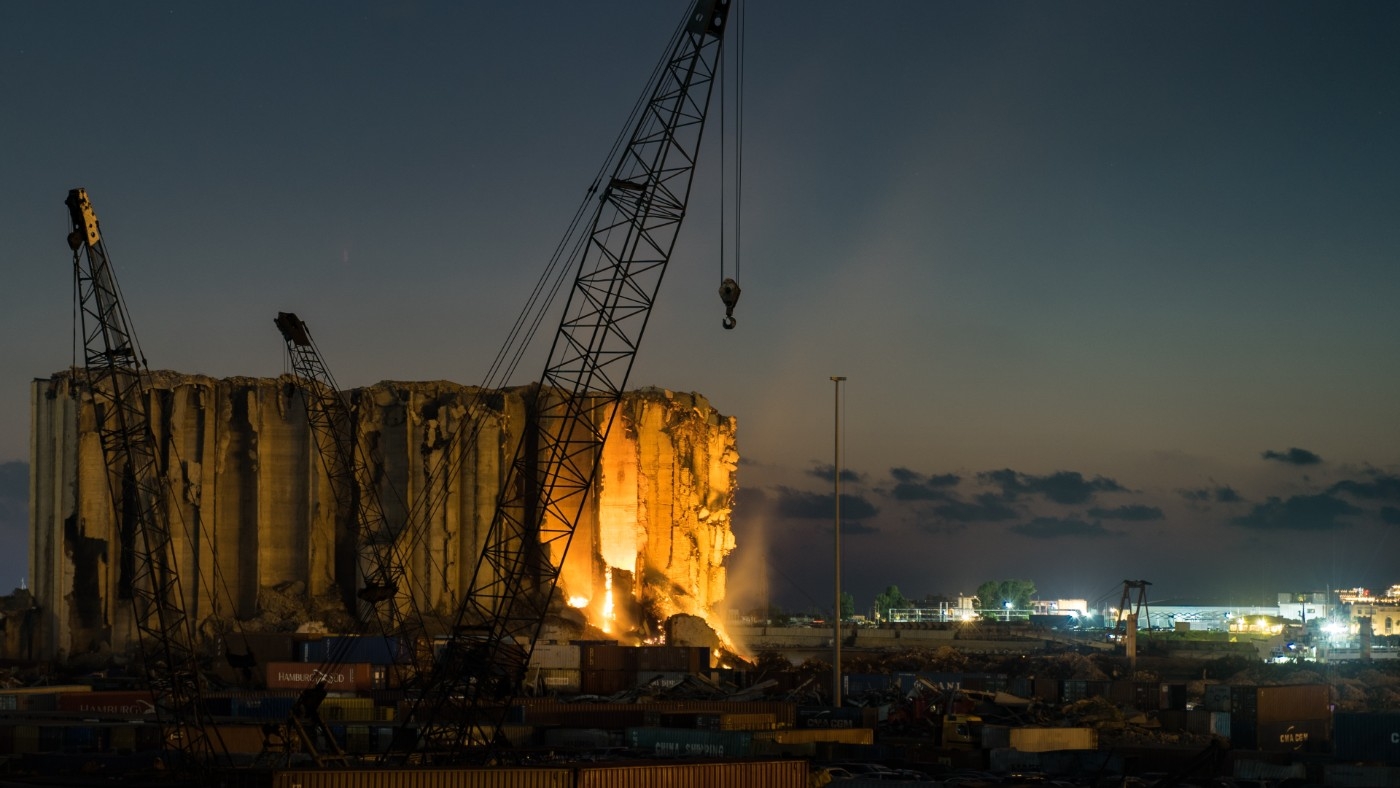
For three weeks in July, a fire burned at the northern part of the silos, giving off an orange glow visible at night from nearby neighbourhoods, as Lebanese officials warned that part of the silos could collapse.
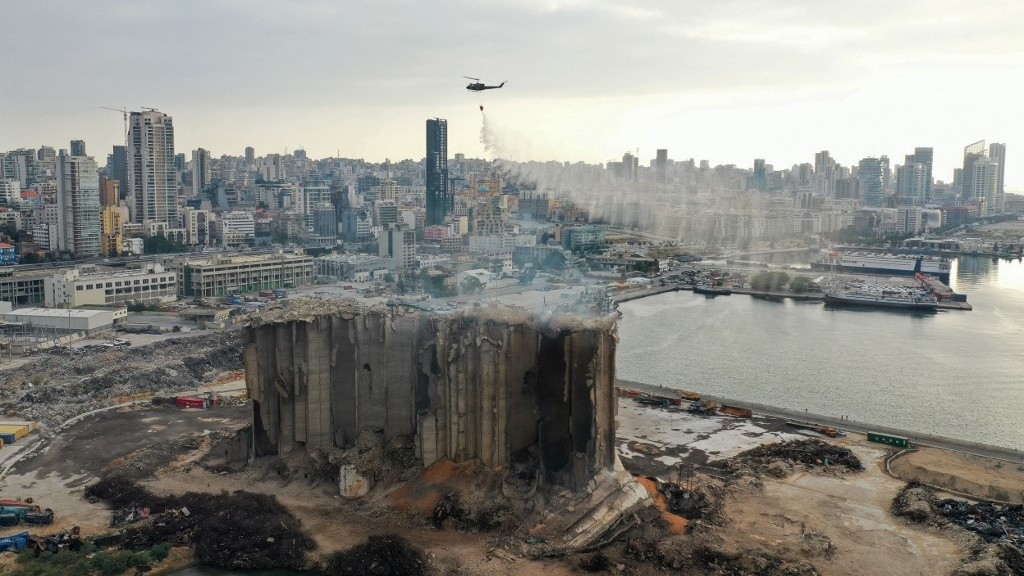
On the afternoon of 31 July, part of the Beirut port grain silos collapsed, sending a large cloud of dust and smoke into the sky on the eve of the second anniversary of the disaster.
Middle East Eye delivers independent and unrivalled coverage and analysis of the Middle East, North Africa and beyond. To learn more about republishing this content and the associated fees, please fill out this form. More about MEE can be found here.



